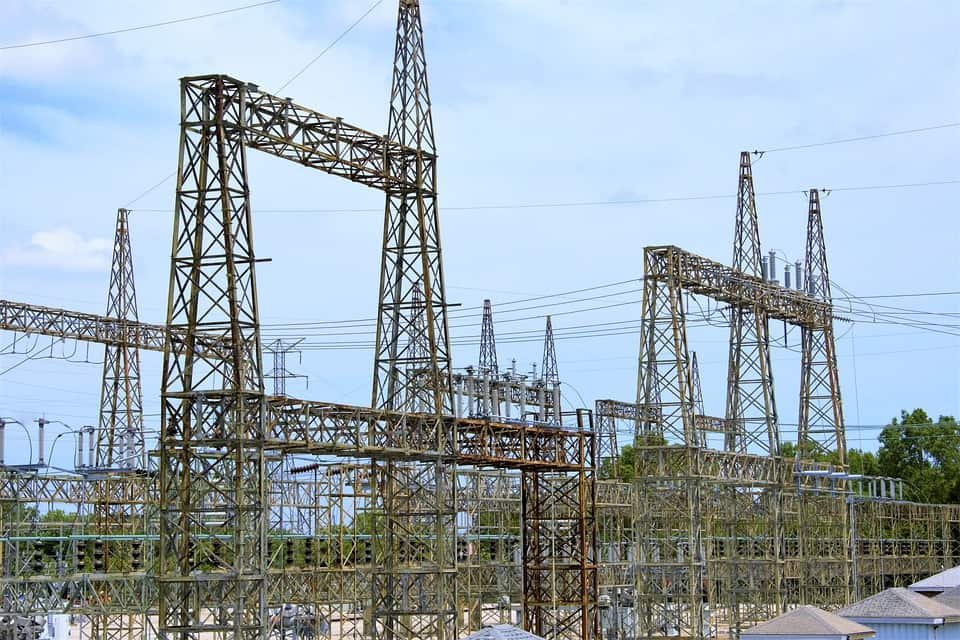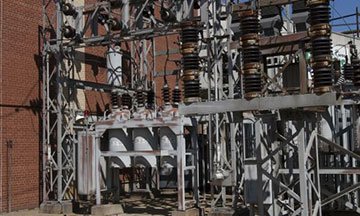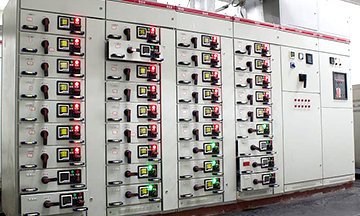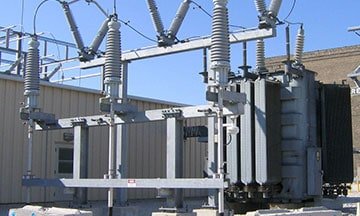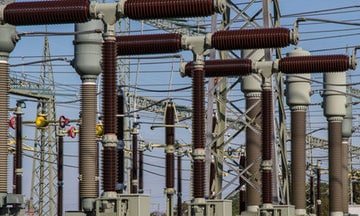Electrical Power Distribution Management Training Course
| Date | Venue | Duration | Fees | |
|---|---|---|---|---|
| 29 Apr - 03 May, 2024 | Dubai | 5 Days | $4750 | Register |
| 13 May - 17 May, 2024 | Dubai | 5 Days | $4750 | Register |
| 10 Jun - 21 Jun, 2024 | Kampala | 10 Days | $9150 | Register |
| 24 Jun - 28 Jun, 2024 | Dubai | 5 Days | $4750 | Register |
| 08 Jul - 12 Jul, 2024 | Dubai | 5 Days | $4750 | Register |
| 12 Aug - 16 Aug, 2024 | Dubai | 5 Days | $4750 | Register |
| 19 Aug - 30 Aug, 2024 | Lisbon | 10 Days | $9850 | Register |
| 09 Sep - 13 Sep, 2024 | Dubai | 5 Days | $4750 | Register |
| 21 Oct - 01 Nov, 2024 | Dubai | 10 Days | $8775 | Register |
| 04 Nov - 08 Nov, 2024 | Dubai | 5 Days | $4750 | Register |
| 09 Dec - 13 Dec, 2024 | Dubai | 5 Days | $4750 | Register |
| 16 Dec - 20 Dec, 2024 | Rome | 5 Days | $5695 | Register |
Course Overview
This Certification in Electrical Power Distribution Management course covers the basics of power distribution, power cables, power convertors, voltage fluctuations, and earthing and lightning protection guidelines.
The main aims of this Electrical Power Distribution Management course are to educate, evaluate and certify the skills and competencies of participants to enhance their output of work through substantial training.
It is also important that technicians in the field of power distribution can implement the right type of policies for the suitable application of these systems. This course will provide you with detailed technical proficiency in this domain that you require to understand the operation and functions of power distribution.
What are the overall benefits of studying the ‘Electrical Power Distribution Management’ course? This course teaches you to execute the right type of distribution techniques for the suitable application, select and install the most economic power cable, apply successful maintenance strategies and procedures, and use effective techniques to resolve problem areas in your power network.
This Zoe training course will inspire you with the knowledge of power distribution systems, as well as how to go about planning and carrying out its functional aspects competently.
Course Objectives
Upon completing this ‘Certificate Electrical Power Distribution Management’ program successfully at Zoe, participants will be able to:
- Acknowledge the essentials of practical power distribution
- Resolve short-circuit issues swiftly and successfully
- Select the correct type of equipment for the right application
- Measure the effect of fault levers on switchgear ratings
- Classify the different functions for various types of cable protection
- Use and protect power transformers fittingly
- Evaluate and stipulate correct earthing all over your electrical network
- Judge the economic reasoning for installing the selected equipment
- Gauge the benefits of modern protection for your systems and preventative maintenance schedules
- Lay down accurate power cable installation methods and guidelines
Training Methodology
This is an interactive Electrical Power Distribution Management training program and will consist of the following training approaches:
- Lectures
- Seminars
- Presentations
- Group Discussions
- Assignments
- Case Studies & Practical Exercises
Just like all our courses, this program also follows the ‘Do-Review-Learn-Apply’ model.
Organisational Benefits
Companies who send in their employees to participate in this Electrical Power Distribution Management course can benefit in the following ways:
- Keep your company one step ahead with this all-inclusive overview of power distribution systems
- Completing this course successfully will give you more confidence in the handling of power distribution systems
- Gain practical knowledge that will give you an edge in your workplace
- Discussion-based sessions let you communicate with your instructor and fellow students
- Interactive sessions let you connect with your instructor and peers to learn from real-world examples that will build your skillset and can be applied in your respective roles
- You can obtain a professional qualification at a competitive cost if you sign up for this course with Zoe
Personal Benefits
Professionals who participate in this Electrical Power Distribution Management course can benefit in the following ways:
- Enhance your productivity through skill training
- Bring yourself up to speed in the latest trends and technologies used in power systems
- Benefit from a tailor-made academic program for technicians or equivalent workforce involved in the energy sector
- Get yourself trained, assessed and certified by experts in the domain
- Improve your skills and get yourself qualified for further training and qualification in this field
Who Should Attend?
This course is ideal for technicians or equivalent employees working in the power or electricity sectors, or persons working as electrical technicians. The program will also be useful to engineers, supervisors and other technical individuals who require a fundamental understanding of how power distribution systems function.
If you are a stakeholder in the power industry, as a consumer or as an employee, or if you are seeking for a job in the power industry, this course will be extremely useful to you.
Course Outline
MODULE 1: INTRODUCTION
- History and growth of power distribution
- Typical characteristics of an industrial distribution system
- Benefits of 3-phase AC power system
- Multiple voltage levels in power distribution
- Expandability
- Voltage classification
- Types of distribution provisions and idleness
MODULE 2: FUNDAMENTALS OF PROTECTION
- Basic requirements
- Need for protective apparatus
- Protection in distribution systems
- Components of protection systems
- Protective relays for circuit breaker application
- Time and current grading
- Protection integrated into LV devices
- Significance of settings and coordination of protective relays
MODULE 3: DISTRIBUTION SYSTEM PLANNING
- Data collection
- Selection of appropriate equipment
- The need for system development
- Location of key assets
- Planning of electrical system configuration
- Selection of basic system parameters
- Protection of future growth of electricity demand
- Equipment ratings/sizing
MODULE 4: TRANSFORMERS
- Transformer theory
- Installation of transformers
- Voltage control
- Power transformers and distribution transformers
- Troubleshooting
- Construction
- Cooling
- Fire defence methods for large transformers
MODULE 5: SWITCHGEAR
- Major components
- Indoor and outdoor construction
- Metal enclosed switchgear basics
- Switchgear ratings
- Typical switchgear example
- Protection and safety features
MODULE 6: CIRCUIT BREAKERS
- Fault detection of cable installations
- Key components and auxiliary systems
- Types of circuit breakers
- Assessment of various breakers
- Assembly of a typical circuit breaker
MODULE 7: CABLES
- Basic design, selection and sizing
- Types and construction of cables
- Accessories for cable installation
- High voltage power transmission using cables
- Insulating materials for LV and HV cables
- Fault detection of underground cable installations
MODULE 8: IN-PLANT GENERATION AND ITS AMALGAMATION WITH POWER SYSTEMS
- Types of in-plant generation
- In-plant power generation sources
- Corresponding operation of in-plant generators with external sources
- Cost of power interruptions in critical processes
- Integrating in-plant generation with plant distribution
MODULE 9: POWER QUALITY
- What is power quality?
- Tackling voltage fluctuations and flicker
- Effect of power interruptions and needs of equipment
- Equipment sensitivity
- Handling voltage irregularities
- Need for improving power quality
- Variations in voltage amplitude and reasons
- Power factor and power factor improvement by capacitor banks
MODULE 10: EARTHING AND SAFETY
- Role of electrical insulation in safety
- Why do electric shocks occur?
- Earthing in outdoor installations
- Earthing of power supply and its safety consequences
- Lightning safety
- Lightning shield for buildings
- Touch and step potential
- Direct and indirect contact
- Avoiding electric shock
- Role of earthing of equipment insertions in human safety
MODULE 11: ASSET MANAGEMENT AND POWER SYSTEM AUTOMATION
- Condition Based Maintenance (CBM)
- Reliability Centred Maintenance (RCM)
- Asset records
- Growth of automation in the power industry
- What is SCADA?
- Requirements for the SCADA master station
- Necessities for SCADA remote units
- Matters relating to SCADA deployment
- Insulation corrosion
- Diagnostic methods
- Problems in switchgear maintenance
- Fault management
- Power system automation and its functions
- Power system automation architecture
